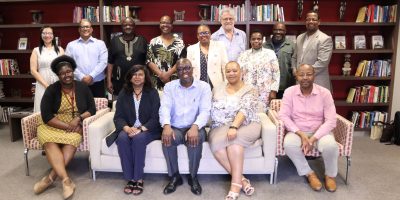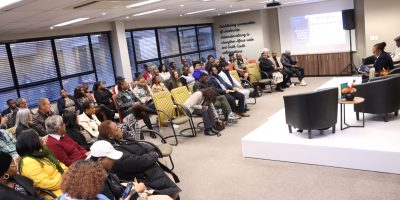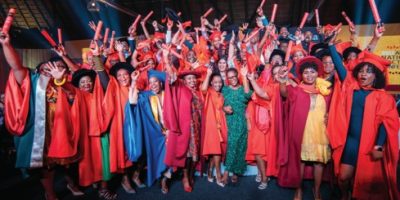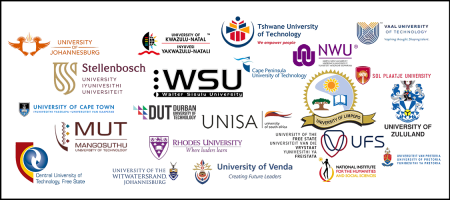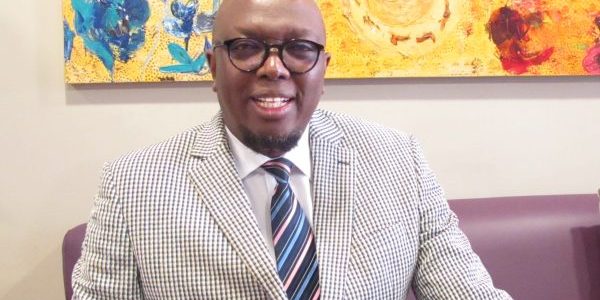Welcome, everyone
Thank you for taking time out of your busy schedules to attend and participate in the NIHSS 2023 Annual National Doctoral and Humanities and Social Sciences Conference, a conference that exudes a diverse spirit among its attendees and participants. As Vice President of the South African Deans Association (SAHUDA), I am privileged and honoured to represent my fellow deans and colleagues, where we celebrate and honour the graduates from NIHSS, inspire those still on their research journey and show thanks and appreciation to our alumni.
Let me start by emphasising that this two-day conference and celebratory event is yet again an opportunity to share and showcase the importance of Social Sciences and Humanities. We are surrounded by people who keep sharing their extraordinary knowledge and skills, continuously working to expand research in the Social Sciences and Humanities. As Humanities scholars and researchers, we continue to strive for excellence and quality while finding solutions to the global challenges society faces.
This year marks ten years since the NIHSS has been formally established. It has since built on driving cooperation between institutions, establishing national and international communities of scholarship, advancing norm-driven internationalisation, scholarship, research and ethical practice in the Social Sciences and Humanities, and fulfilling their social responsibility and equity roles within society. The NIHSS and the Charter for the Humanities and Social Sciences have made great strides in improving the higher education landscape.
The continuous dedication of the NIHSS towards the expansion of research in the fields of Social Sciences and Humanities remains the driving force behind the success of its graduates. It has made higher education more responsive to and inclusive of the global challenges humankind faces. Studying people within their social, cultural, psychological and political milieus contributes to our understanding of their behaviours and decisions. Also, research within the Social Sciences and Humanities acknowledges the importance of our history, culture and philosophies, shaping academic future endeavours.
The issues facing the world today range from natural disasters such as floods to societal conflicts, impacting especially women and children. We mourn the deaths of the innocent people caught in the Gaza conflict. Our duty and responsibility is to reflect on such conflicts to bring about change in the world through our research contributions.
We should remain conscious of the current challenges in the world, especially how they impact research in the Humanities and Social Sciences. Artificial intelligence, for example, has impacted the Humanities, giving rise to digital humanities. Although we should acknowledge the remarkable capabilities of AI and how it can shape research within the Social Sciences and Humanities, we must always remember that AI cannot replicate the complexities and unique qualities that make us human. Also, always remember that despite the numerous challenges that can negatively impact society or divide a nation, so too are there positive ways to unite nations, such as the Rugby World Cup.
My fellow academics and regional and roving mentors, thank you for your support in growing and shaping our future researchers. Thank you for nurturing the growing talent of these novice researchers. Your ongoing efforts in encouraging and supervising them significantly impact the quality and quantity of research within the Social Sciences and Humanities. Keep playing a leading role in identifying gaps within the research, addressing societal challenges locally and abroad, and proposing corrective actions to contribute to the quality of life of individuals, society and the nation at large. Also, by facilitating an understanding of societal issues, we improve the quality of mind of our graduates and how they interact with the world around them, instilling in them a global responsibility to understand, appreciate and respect the diverse makeup of humankind.
Furthermore, improving the quality of research positively and significantly impacts societal transformation, enabling scholars to inform policies and programmes aimed at improving people’s lives. In addition, transdisciplinary research and collaboration with other disciplines can contribute to several initiatives, such as building healthy communities, enriching the lives of those studied, and recognising different ways of thinking. As a result, we embrace other scholars’ contributions to the Social Sciences and Humanities, addressing multiple forms of equality, thus ensuring equity and inclusion in South Africa’s diverse society.
My fellow academics, thank you for being members of a global community. Your support in fostering an appreciation for our past and our future is seen in your dedication and involvement in the graduates we celebrate today.
Professor Mogomme Masoga
SAHUDA – VICE PRESIDENT

